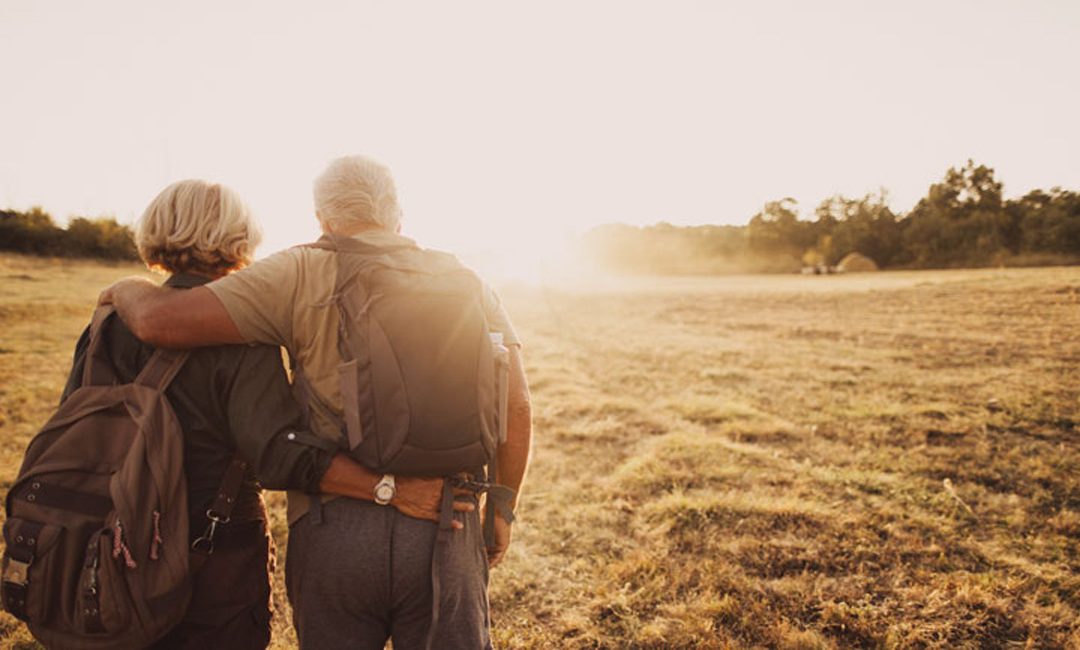Healthy Planet, Healthy Aging!
By Arvind M. Dhople, Ph.D., Professor Emeritus, Florida Tech
Climate change is the single greatest health hazard facing humanity, according to the World Health Organization (W.H.O.) and the United Nations (U.N.). The simple fact is, without a healthy planet, humanity has limited prospects of longevity. There’s no pro-aging so long as the planet is facing climate crisis. For most of the history, man has had to fight nature to survive; in this century he is beginning to realize that, in order to survive, he must protect it.
The United Nations (UN) Panel on Climate Change Report (February 27, 2022) provided a grim outlook of the impact of climate change,, emphasizing the severe effects on our health and the resulting overwhelming strain on health-care systems. It reports record-high global temperatures that provide breeding ground for infectious diseases and that jeopardize food security. Because these effects will pose the greatest dangers for vulnerable groups, climate disruptions are widening pre-existing age-related divides.
It seems there is a pressing need to address climate change now, because the window for the success of strategies is narrowing by the day. Yet, the somber tone is not mirrored in the sentiments of the general public and in the actions of governments. The discourse around climate change is largely dominated by concerns for our next generation – our children and grandchildren. Although such concerns are certainly not unfounded, the focus is misplaced: climate change is already affecting us.
Regarding current populations, older people are disproportionately afflicted. A 54% increase in heat-related mortality in people older than age 65 years has been observed over the past 20 years, and nearly half of the people who died during Hurricane Katrina (2005, with 1,833 people died) and Hurricane Sandy (2012, 285 people died) were older than age 65 years. Moreover, exposure to air pollution poses a great risk of adverse health effects for older people, causing or exacerbating respiratory conditions, such as chronic obstructive pulmonary disorder.
Because climate stresses will continue to render some regions uninhabitable, forced migration and community displacement will see many older people left behind, often due to limited mobility and a greater reluctance to leave the homes and homelands to which they are strongly attached. Those older people who do migrate are more vulnerable than are migrants of other ages. Older people face greater health risks, such as greater multimorbidity and poorer mental health, reduced access to employment, services and documentation, and greater discrimination and isolation in their local community environments.
As our population continues to age, with those older than 65 years out numbering children by 2050, we must recognize that any actions to promote healthy longevity cannot be taken in isolation without actions to also ensure a healthy planet. Aging well is impossible in an unhealthy or actively inhospitable environment. Our current issue includes a call for synergistic solutions to address both healthy aging and climate change – examples include removing access barriers to public transportation and transitioning to sustainable diets.
By placing too great a focus on the effects of climate change on future generations, we also fail to recognize the effects already affecting all generations. Such failure stems from and perpetuates blame and, more crucially, ageism. With young voices galvanizing climate demonstrations that express anger and frustration at the previous actions of the older generation that caused climate change and the current inaction in rectifying these changes, the intergenerational rift has further deepened. A 2019 speech by Greta Thunberg drives home this rift: ‘the older generations are failing us.” This dismissive phrase ‘ok boomer’ has become the slogan for younger generations condemning older people’s muted response to or dismissal climate change.
Tackling climate change does not require a culprit, and such discourse both ignores the ongoing consequences on our most vulnerable members of society and derails constructive discussions. To meet our climate targets, repairing the intergenerational divisions exacerbated by climate change and acting collectively to achieve a healthy planet are imperative.
We must cease placing blame on the older generation and must shed notions that older people will remain unscathed by our changing planet, because this is unfounded and unproductive. The Report (in the beginning) underscores that our health is contingent on the health of our planet, with clean energy, clean air, and safe drinking water key components to supporting healthy longevity for both humanity and the environment. We must act now to save not only children but ourselves.


Recent Comments